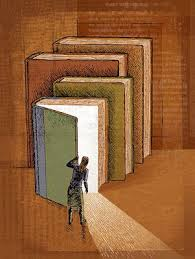Education
New Year, New Beginnings.
Happy New Year everyone! With the new year, many (aspiring) authors have made a resolution to write more. Or better. But to do that, you'll first need to know how to get your writing process started.
For some, it's easy. They sit down, and the words just flow onto the page. If it's not that simple for you, these seven helpful tips might benefit you. All good things come in sevens, right?

First and perhaps most important, decide on what you want to write. Make sure you have at least a rough idea of the kind of story you're about to create. If you're not entirely sure yet, that's fine. Just write down what you do know. Perhaps you've decided on the genre, or you have a main character that has shown themselves to you. Maybe you have an ending or a specific piece of dialogue in your head. Anything works because that piece of the story, that spark that initially piqued your interest, will get you excited about writing. And when you've found the passion, nothing can stop you.
Secondly, allow yourself to write badly. Remember that what you're writing is only a first draft. Nobody else has to read it until it's thoroughly edited. It's harder to write on a blank page than it is to continue off a couple of paragraphs, even if they are bad. And, as they say, you can't edit a blank page.
Third, start small and build up. Ever heard of the Snowflake method? It's a fantastic method of writing that lets you build on that small, initial idea and make it bigger until it becomes a full-fledged novel. It also lets you hold on to that initial enthusiasm for your idea because you can literally watch it grow on the page.
Fourth, start in the middle. Sometimes the beginning of the story doesn't want to be written yet. Sometimes you can't get it down right because you don't know what will happen later yet. Sometimes you just need a change of scene(ry). Try starting somewhere in the middle of the story and see if that works better for you. This could help you explore your new characters, scenes or world before having to write the story properly.
Fifth – and this one consists of two tips, depending on what type of writer you are – make up the story as you go, or (if that's what you're struggling with) work out the plot first. This is a very personal thing. Some people can't write a single word without working out the plot first, while others struggle massively with the plot, but can write freely when they don't have any outline to stick to. Most are somewhere in the middle. If you usually write a plot outline, why not try making up the story as you go for a change? If you're usually a pantser, why not try writing that dreaded plot for a change? It might help you get back into the writing flow.
Sixth, decide on a title. Choosing a title can give form to your story. It can give you a direction to work in. A sense of purpose.
And last but not least, create a synopsis for your story. It might feel counterintuitive to write the synopsis before the story is finished, but remember that it doesn't have to be the final one. This synopsis isn't for the reader, it's for you. To give you an idea of what the story is going to be, to give you some grip on the story, and to give you something to look back to whenever you're stuck. If anything in particular sparked this story idea, you might want to include that in this provisional synopsis because looking back on that spark when you're stuck might give you the passion for your story back.

So there you have it, our seven best tips to get you writing. Whether you have writer's block or just don't know how to develop your latest story idea, hopefully, these tips can help you get started.
Happy writing!
Naomi - NDeMeer
Team Of Dreams
Reprinted from Aspire, January 2021
Bạn đang đọc truyện trên: AzTruyen.Top